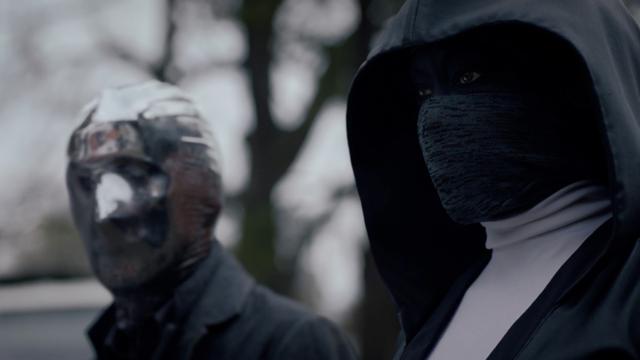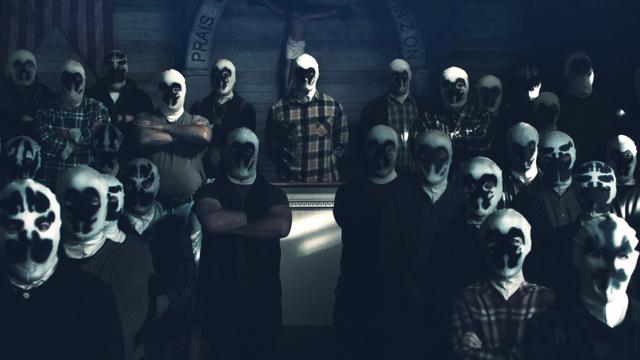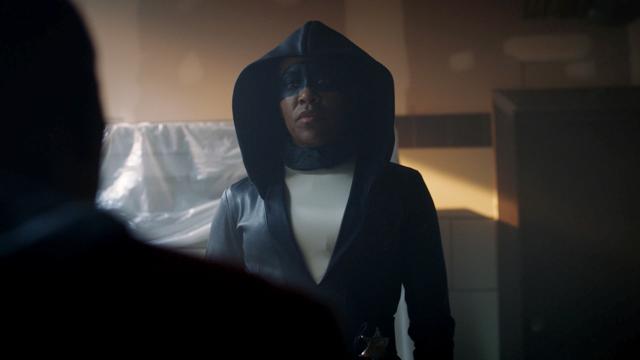Watchmen review: HBO delivers one of the greatest shows of 2019, an awe-inspiring antithesis to Avengers Endgame
Watchmen review: HBO and Damon Lindelof deliver one of the greatest shows of 2019, an awe-inspiring antithesis to Avengers Endgame that is appointment TV at its finest. No spoilers.
Watchmen
Creator - Damon Lindelof
Cast - Regina King, Don Johnson, Tim Blake Nelson, Jeremy Irons, Jean Smart, Hong Chau

When film director Terry Gilliam asked writer Alan Moore how he’d go about adapting his celebrated comic book (never graphic novel) Watchmen, Moore famously replied, “I wouldn’t.”
The writer, bothered by Hollywood’s repeated mishandling of his work — at the time, From Hell, A League of Extraordinary Gentlemen and V for Vendetta had been turned into films — had vowed to disassociate himself from any future adaptations. Gilliam took the hint and dropped out, declaring Watchmen to be ‘unfilmable’ as he departed. Zack Snyder, hot off 300, was eventually hired to direct.
A man of tremendous principle, Moore refused to accept a cut of the film’s profits, and instructed for all monetary compensation to be directed towards his co-creator, artist Dave Gibbons. Not one to limit himself to stern statements, Moore said that he’d cursed the project, and would be actively ‘spitting venom’ in its direction throughout its production. If you were Zack Snyder, you’d be understandably concerned by this strange threat, but coming from Moore, a self-proclaimed ceremonial magician and occultist, you’d be justifiably terrified.
Watch the Watchmen trailer here
Sure enough, Moore’s name was nowhere to be found in Snyder’s film (the accursed thing didn’t do all that well at the box office, by the way), nor is it mentioned in HBO’s new TV adaptation. Moore understood that there is no stopping the forces of capitalism, and decided he’d rather not be involved in their dealings than be duped.
He’d have admired what creator Damon Lindelof has done with the property, though. I wouldn’t go so far as to say that he’d have liked it, but he would surely have appreciated Lindelof building on what already exists, instead of falling back on it. The Watchmen TV show isn’t a direct adaptation, but rather a tonally similar sequel to Moore’s story (and, on occasion, also Snyder’s film).
Set 30 years after the events of the comic, in an alternate reality where the uber-liberal Robert Redford (the very same) has been the longest serving president of the United States, Watchmen, the show, updates the book’s Nixon era cultural criticism for an audience that voted Donald Trump into power. Human beings are fickle creatures, the show suggests, perhaps channelling the god-like Dr Manhattan; prone to making the same mistakes over and over again.
No smartphones exist in this alternate reality, nor is there any internet. Anonymity is instead attained through old-fashioned means. Men and women on both sides of the law have taken to wearing masks. They say it’s to protect their identity, but it’s also ostensibly a mechanism to conceal their misdeeds.

Like Lindelof’s previous show, the similarly navel-gazing and phenomenally underrated The Leftovers, Watchmen also examines how society is reshaped by a cataclysmic cultural event. The fallout sets into motion a ripple effect that magnifies over time, ultimately creating a chasm that can only be repaired by an event of equal magnitude.
Lindelof seems to be obsessed about the idea of how America changed after 9/11 — how certain powers have played into the paranoia, while the opposition has been just as extreme in its dissenting opinion. In The Leftovers, the sudden disappearance of 2% of the world’s population sent society spiralling into either spirituality, or chain-smoking nihilism. In Watchmen, Adrian Veidt’s masterplan to unite humanity at the end of the comic, by presenting warring nations with a common, alien threat, had precisely the sort of profound impact that he’d predicted. People stopped fighting for a while; the newspapers had nothing to write about; Steven Spielberg even made a multiple Oscar-winning movie about it.
Veidt is one of only a handful of characters from the comic who reappear in the show. Played by Jeremy Irons, ‘the smartest man in the world’ is now in exile, surrounded by clone servants of his own making. The other major returning character is Laurie Blake, the former Silk Spectre, now an FBI agent who specialises in tracking down masked vigilantes.
After a series of attacks on cops — a neat mirror to the opening of the comic — in the town of Tulsa, Oklahoma, Laurie is sent to investigate the rise of a white supremacist faction that calls itself the Seventh Cavalry. The KKK-like Cavalry appears to have appropriated the worst aspects of the vigilante Rorschach’s right-wing personality, and has appointed him as their symbolic and ideological figurehead. This is an interesting thought, which questions the nature of morality, and how it can be fashioned to suit one’s own personal biases. The Rorschach of the comic was, after all, a ‘hero’.

Lindelof’s decision to restrict a story of such global scale to a middle-sized, middle-America town is similar to what he did with The Leftovers. But Tulsa, besides serving as a microcosm of modern America, also has thematic and historic relevance to the story that Lindelof is telling. In 1921, the town witnessed a tragic race-related riot that claimed the lives of hundreds of black people — at the time, it was home to the wealthiest black community in the entire country. The attack has since been described as ‘the single worst incident of racial violence in American history’. And it began like so many racially motivated attacks do, and will no doubt continue to — with a man from a minority being accused of insulting the modesty of a woman from the majority.
The series begins with a recreation of the riots, the fallout of which can be felt even in the present day, with several of the show’s characters — both black and white — being direct descendants of people who were involved in the violence back in 1921.
Watchmen’s themes of mob justice, lynchings, and impending annihilation aren’t relevant just to contemporary America, but also to our own country. To draw further parallels, the government in the show has passed a bill called DOPA (the Defence of Police Act) which offers blind protection to law enforcement officers if and when they require it. On the other hand, the leftist Redford government also offers victims of racial violence reparations, nicknamed ‘Redfordations’, perhaps an echo of Obamacare.
Lindelof isn’t so much trying to make a statement about our moral failings as a society — the concept of good and bad is often murky in the world of Watchmen — as much as he is implying, like Alan Moore, that we are trapped in an inescapable prison of our own making, that humanity is its own worst enemy. As Martin Luther King Jr once said, “Hate begets hate; violence begets violence; toughness begets a greater toughness.”

So does this mean that superheroes are irrelevant in our world? Absolutely. But does that mean that we are no longer allowed to be delusional? No. By voting men and women into power and expecting them to do good, we reveal our optimism, and by paying to watch costumed crime fighters on screen, we reinforce it.
While the show is layered with symbols and imagery that fans of the comic would no doubt recognise — eggs symbolise life, clocks are metaphors for the passage of time, nooses conjure images of death — this doesn’t in any way make it exclusive to viewers familiar with Moore’s world. A certain patience, however, will be required on your part; this is no Game of Thrones.
Watchmen reaffirms Damon Lindelof’s stature as one of the greatest creators to have ever worked in the medium of television — not streaming, mind you. The show, like The Leftovers and his breakout series, Lost, is appointment TV at its finest. Writers can spend their entire careers creating something that isn’t half as special as even one of these programmes; Lindelof has made three.
And each of them has that unique blend of supernatural intrigue and thought-provoking, philosophically dense drama. Watchmen isn’t just an excuse for Lindelof to revisit his lifelong fascination with alternate dimensions and the volatile nature of reality, but also an opportunity for him to explore contemporary anxieties. And you know how he got away with it? By hiding behind a mask; by wearing a costume that screams, “This is a superhero show!” It really isn’t.
(This review is based on the first six episodes of the show)
Follow @htshowbiz for more
The author tweets @RohanNaahar
Watchmen will air on Hotstar beginning October 21, and will premiere on Indian television on 24th November on Star World at 10 pm.
Get more updates from Bollywood, Hollywood, Music and Web Series along with Latest Entertainment News at Hindustan Times.



